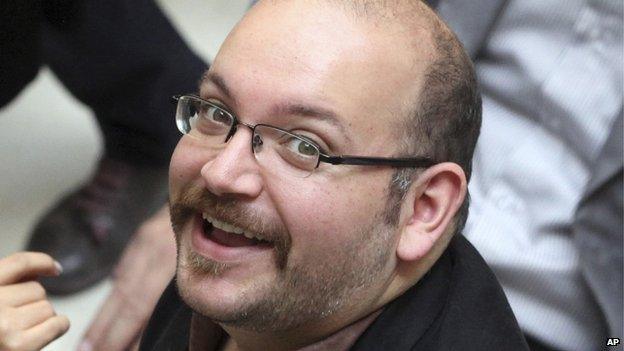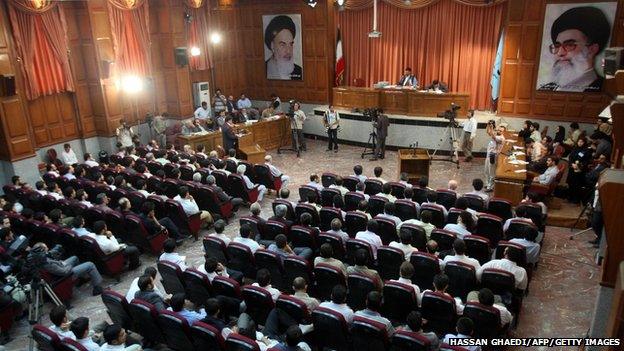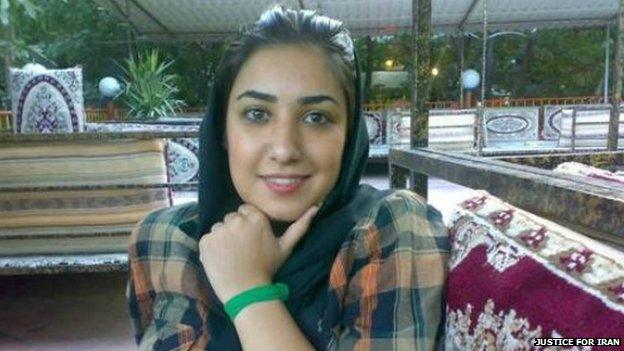Jason Rezaian: Trial of US journalist resumes in Iran
- Published

Jason Rezaian has been the Washington Post's Iran correspondent since 2012
The trial in Iran of Washington Post journalist Jason Rezaian on spying charges has resumed, state media say.
Two other defendants were present at the closed-door hearing at a Tehran Revolutionary Court, the Irna news agency reported, without naming them.
Mr Rezaian is accused of espionage, collaborating with hostile governments, gathering classified information and disseminating propaganda against Iran.
The 39-year-old dual US-Iranian citizen has been in custody since July 2014.
Mr Rezaian's family has dismissed, external the charges as "absurd", while the Washington Post has condemned, external what it calls the "shameful acts of injustice" perpetrated against their correspondent.
He could face up to 20 years in prison if convicted.
'Legal activities'
Irna's report gave no details about the second hearing of Mr Rezaian's trial, other than it was expected to last until early on Monday afternoon.

Mr Rezaian is being tried by a Revolutionary Court in Tehran
As at the first hearing on 25 May, reporters gathered outside the courthouse did not see Mr Rezaian or his co-defendants arrive, according to AP.
The two other people on trial are believed to be Mr Rezaian's wife Yeganeh Salehi, a reporter for the Abu Dhabi-based newspaper The National, who was arrested alongside him on 22 July, and a female photojournalist who was also detained on the same day.
Both women were swiftly released on bail, but Mr Rezaian had to spend a number of months in solitary confinement and was not formally charged until December.
The semi-official Mehr news agency reported that Mr Rezaian had denied doing anything outside the normal activities of a news reporter at the start of his trial.
"I am a journalist, and all of my activities have been conducted as a journalist, and all were legal," he was quoted as saying.
On Friday, the UN special rapporteur on human rights in Iran expressed, external serious concerns at the arbitrary and unlawful arrest, detention and prosecution of journalists in the country.

Activist and artist Atena Farghadani was jailed last week for spreading propaganda
"Journalists must be protected, not harassed and prosecuted for doing their jobs. The detention and trial of Mr Rezaian and Ms Salehi not only violate their individual rights, but also intimidates those working in the media in Iran," Ahmed Shaheed said.
Mr Shaheed added that he was equally disturbed by the imprisonment of Atena Farghadani and Nargis Mohammadi, external, activists known for their human rights work.
Ms Farghadani was sentenced last Tuesday, external to more than 12 years in prison for spreading propaganda against the system, gathering and colluding against national security and insulting members of parliament and the supreme leader.
The charges stemmed from a cartoon she drew that criticised draft laws which would restrict access to birth control.
Ms Mohammadi, the former vice-president of the Defenders of Human Rights Centre, was ordered last month to serve the remainder of the six-year sentence she received in 2012 on charges of assembly and collusion against national security, and propaganda against the system.
- Published26 May 2015

- Published20 April 2015

- Published26 January 2013
